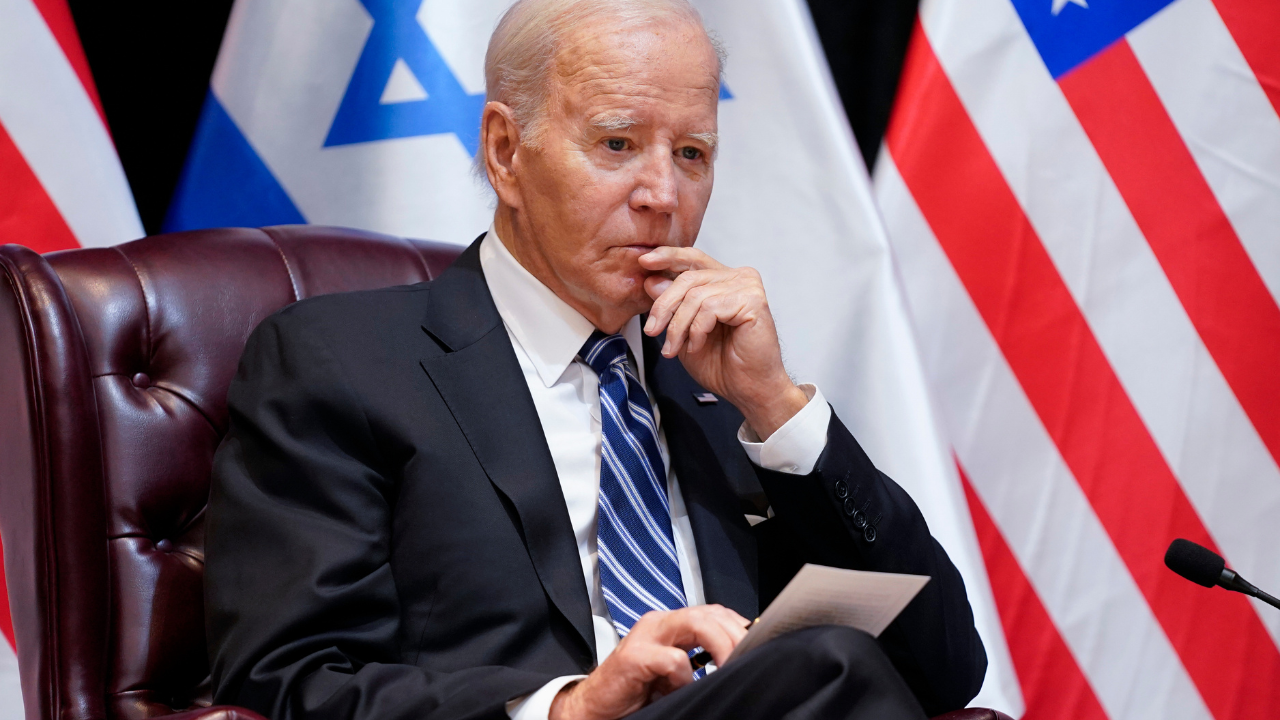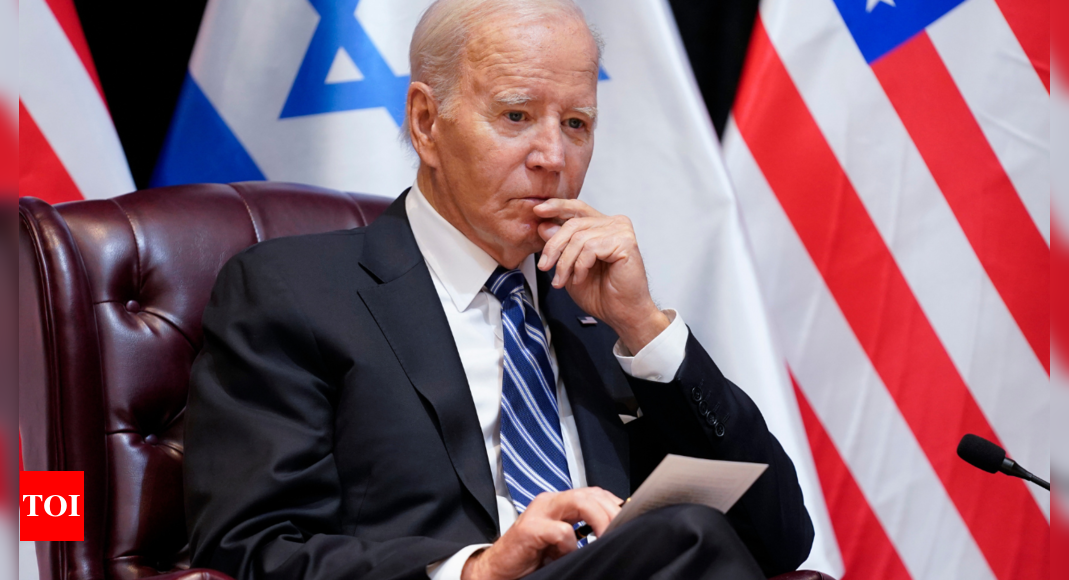
MUMBAI: Addressing concerns about the perceived lack of reforms on legal immigration systems, Karine Jean Pierre, Press Secretary, White House, told reporters that the Biden administration is “…Continuing to do everything we can to improve the visa process.”
In a briefing on Wednesday, late night, India time, Pierre said, “If we look at the H1-B visa process, we have taken action to improve that: end the process and backlogs for lawful permanent residents who are eligible to become US citizens.”
“Just last month, for example, as a part of our efforts to strengthen the integrity of our immigration system and reduce potential for fraud, the Department of Homeland Security (DHS) published a final rule relating to H1-B visas. So, the changes promote fairer and more equitable outcomes,” she added.
Pierre emphasized, “And so, we will continue our work to improve the system within our authorities. And that has certainly been a priority.”
The H-1B visa is a very popular work visa for Indians aspiring to work in the US. Typically, at least 60% of the annual quota of 85,000 is allotted to Indian beneficiaries especially those working in the technology sector.
TOI in its edition of Feb 1, had covered the proposed change – a move to a beneficiary-centric selection process for H-1B visas in order to prevent gaming of the system.
Last filing season, (for fiscal year that commenced on Oct 1, 2023), USCIS had received 7,58,994 eligible registrations – a 60% rise in numbers. USCIS pointed out that some sponsoring companies had tried to gain an unfair advantage by working together to submit multiple registrations on behalf of the same beneficiary, thus increasing his or her chances of being selected in the lottery. This led to strengthening of the mechanism.
E-registrations for H-1B visas opens on March 6 and run through March 22. Post which US employers will have to file detailed applications for those beneficiaries who have been selected in the lottery.
Under the new mechanism, if a beneficiary is selected in the lottery, each potential employer (say Co A, Co B) that filed a registration on that beneficiary’s behalf will be notified and eligible to file an H-1B cap petition for the beneficiary. This in turn will also give beneficiaries some autonomy in choosing their employer, if they are selected in the lottery and have multiple job offers.
The primary reason or the decades-long employment-linked green card backlog for Indians is the per-country cap. Unfortunately, bills that have aimed to remove the per-country cap of 7% such as the ‘Fairness for High-Skilled Immigration Act’ among others, have not been passed. More recently, in February, the National Security Agreement – a $118.28 billion package that sought to strengthen border security and authorized more assistance to Israel and Ukraine and contained various measures for legal immigration reform didn’t see the light of the day.
Through the Immigration Nationality Act (INA), the US Congress authorizes the government to issue 6.75 lakh green cards annually. From this total, 4.80 lakh green cards are allotted for ‘family preference’ immigrants; 1.40 lakh for ‘employment-based’ immigrants; and 55,000 for diversity visa lottery winners (Indians are not eligible for this category). For the first time in over 30 years, the bill had proposed to raise the cap on the number of immigrant visas available annually by adding an additional 2.50 lakh immigrant visas over 5 years. 1.60 lakh of these visas were to be family-based, and the other 90,000 employment-based. It also had measures to protect documented dreamers (such as children of H-1B visa holders) from ageing out and losing their H-4 dependent visa status on turning 21. Provided they had lived as a dependent child of an employment-based nonimmigrant for at least 8 years prior to turning 21, they would have been eligible to remain temporarily in the US with work authorization.
Referring to this bill and responding to a question posed by the media, Pierre was emphatic that Republicans prevented the bill from passing.
“The point is the President (Biden) actually did the work to get a bipartisan bill done, that Act that deals with an issue that the majority of Americans care about. He did. It dealt with border security challenges. It dealt with immigration policy. He actually did that.” “Republicans got in the way. They rejected it. Well, Republicans in the House got in the way, and then it was rejected because of what they were told by the last — by the last president, by Donald Trump, to kill it.”
In a briefing on Wednesday, late night, India time, Pierre said, “If we look at the H1-B visa process, we have taken action to improve that: end the process and backlogs for lawful permanent residents who are eligible to become US citizens.”
“Just last month, for example, as a part of our efforts to strengthen the integrity of our immigration system and reduce potential for fraud, the Department of Homeland Security (DHS) published a final rule relating to H1-B visas. So, the changes promote fairer and more equitable outcomes,” she added.
Pierre emphasized, “And so, we will continue our work to improve the system within our authorities. And that has certainly been a priority.”
The H-1B visa is a very popular work visa for Indians aspiring to work in the US. Typically, at least 60% of the annual quota of 85,000 is allotted to Indian beneficiaries especially those working in the technology sector.
TOI in its edition of Feb 1, had covered the proposed change – a move to a beneficiary-centric selection process for H-1B visas in order to prevent gaming of the system.
Under the beneficiary-centric system, which will kick in for the first time for the upcoming H-1B season, a foreign national’s passport or valid travel document will be required for an H-1B cap E-registration to be made on his/her behalf by sponsoring US employers. This document will be used as the beneficiary’s (ie: foreign nationals) unique identifier. Each beneficiary will only be entered into the H-1B cap lottery selection process once, regardless of the number of E-registrations submitted on his or her behalf.
Last filing season, (for fiscal year that commenced on Oct 1, 2023), USCIS had received 7,58,994 eligible registrations – a 60% rise in numbers. USCIS pointed out that some sponsoring companies had tried to gain an unfair advantage by working together to submit multiple registrations on behalf of the same beneficiary, thus increasing his or her chances of being selected in the lottery. This led to strengthening of the mechanism.
E-registrations for H-1B visas opens on March 6 and run through March 22. Post which US employers will have to file detailed applications for those beneficiaries who have been selected in the lottery.
Under the new mechanism, if a beneficiary is selected in the lottery, each potential employer (say Co A, Co B) that filed a registration on that beneficiary’s behalf will be notified and eligible to file an H-1B cap petition for the beneficiary. This in turn will also give beneficiaries some autonomy in choosing their employer, if they are selected in the lottery and have multiple job offers.
The primary reason or the decades-long employment-linked green card backlog for Indians is the per-country cap. Unfortunately, bills that have aimed to remove the per-country cap of 7% such as the ‘Fairness for High-Skilled Immigration Act’ among others, have not been passed. More recently, in February, the National Security Agreement – a $118.28 billion package that sought to strengthen border security and authorized more assistance to Israel and Ukraine and contained various measures for legal immigration reform didn’t see the light of the day.
Through the Immigration Nationality Act (INA), the US Congress authorizes the government to issue 6.75 lakh green cards annually. From this total, 4.80 lakh green cards are allotted for ‘family preference’ immigrants; 1.40 lakh for ‘employment-based’ immigrants; and 55,000 for diversity visa lottery winners (Indians are not eligible for this category). For the first time in over 30 years, the bill had proposed to raise the cap on the number of immigrant visas available annually by adding an additional 2.50 lakh immigrant visas over 5 years. 1.60 lakh of these visas were to be family-based, and the other 90,000 employment-based. It also had measures to protect documented dreamers (such as children of H-1B visa holders) from ageing out and losing their H-4 dependent visa status on turning 21. Provided they had lived as a dependent child of an employment-based nonimmigrant for at least 8 years prior to turning 21, they would have been eligible to remain temporarily in the US with work authorization.
Referring to this bill and responding to a question posed by the media, Pierre was emphatic that Republicans prevented the bill from passing.
“The point is the President (Biden) actually did the work to get a bipartisan bill done, that Act that deals with an issue that the majority of Americans care about. He did. It dealt with border security challenges. It dealt with immigration policy. He actually did that.” “Republicans got in the way. They rejected it. Well, Republicans in the House got in the way, and then it was rejected because of what they were told by the last — by the last president, by Donald Trump, to kill it.”
Source link

